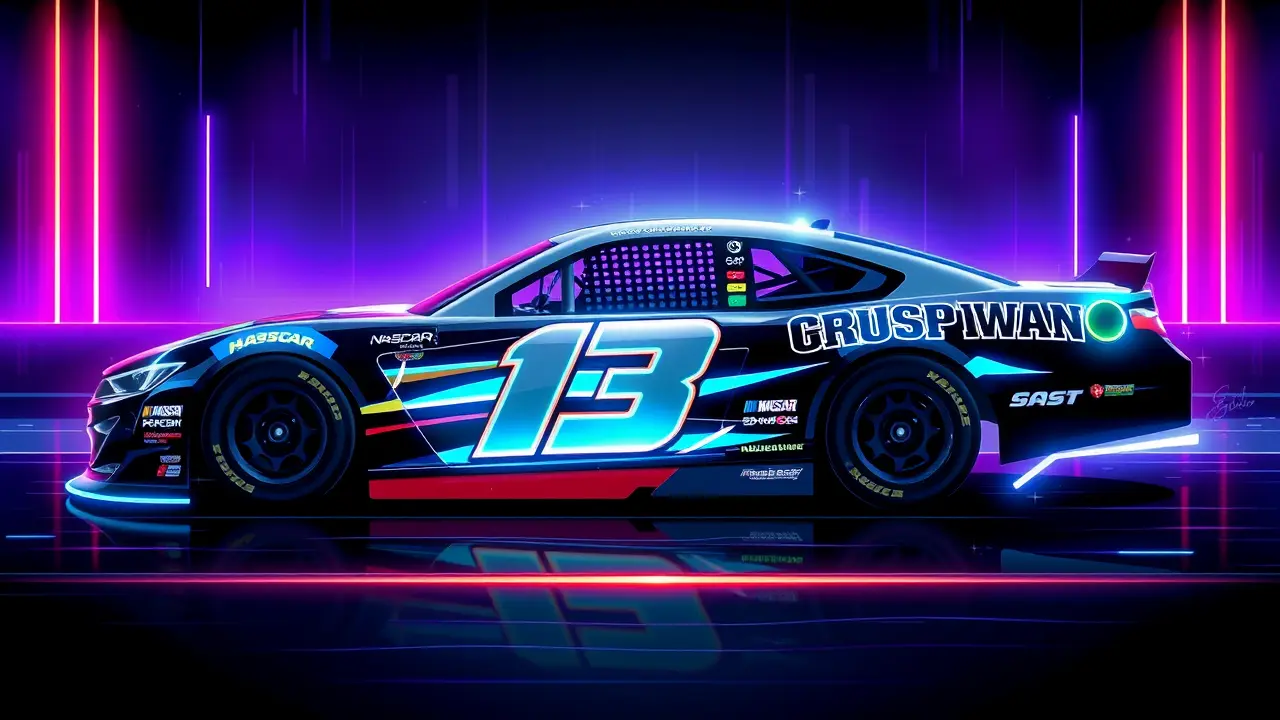
SportmotorsportNASCAR
Where does 23XI Racing, Front Row Motorsports lawsuit vs. NASCAR stand?
JA
Jack Turner
1 month ago7 min read
The high-octane world of NASCAR, a sport built on the thunderous roar of V8 engines and the relentless pursuit of the checkered flag, is now witnessing a different kind of battle, one fought not on the asphalt of Daytona but in the hushed, wood-paneled courtrooms of the federal judiciary. For over a year, 23XI Racing, co-owned by basketball icon Michael Jordan and star driver Denny Hamlin, and Front Row Motorsports, helmed by Tennessee businessman Bob Jenkins, have been locked in a monumental legal struggle against the very sanctioning body that governs their sport.This isn't a minor pit-road dispute; it's a fundamental challenge to NASCAR's operational core, accusing it of being a 'monopolistic bully' and violating the Sherman Antitrust Act. The lawsuit, filed on October 2, 2024, in the Western District of North Carolina, alleges that NASCAR presented teams with a 'take-it-or-leave-it' charter agreement, a contract essential for guaranteed race entry and a share of the lucrative prize money, effectively holding their livelihoods hostage unless they acquiesced to anticompetitive terms.The legal maneuvering since has been as complex and strategic as a championship-winning pit strategy, with Judge Kenneth Bell at the center of a case that could redefine the balance of power in American stock car racing. The initial skirmish saw the teams seeking an injunction to compete in the 2025 season without signing the contested charter, a request initially denied by Judge Frank Whitney in November 2024 who deemed it premature.Undeterred, the teams returned with a refined legal argument, highlighting the imminent risk of losing star drivers like Bubba Wallace and Tyler Reddick, who had just fought their way into the playoffs, and crucial sponsorships. This time, in a dramatic ruling on December 18, 2024, Judge Bell not only granted the preliminary injunction, allowing them to race with their original charters, but delivered a seismic blow to NASCAR's defense by explicitly stating that the organization 'holds monopoly power in stock car racing.' This finding was the legal equivalent of a last-lap pass, giving the plaintiffs significant early momentum. The victory was short-lived, however.NASCAR, demonstrating the relentless resolve it demands from its drivers, immediately appealed. On June 5, 2025, a three-judge panel from the U.S. Court of Appeals for the Fourth Circuit overturned Bell's injunction, a stunning reversal that questioned the legal foundation of the teams' entire antitrust argument, noting a lack of precedent and casting doubt on their likelihood of success.This plunged 23XI and Front Row into immediate crisis, forcing them to compete as 'open' teams at Dover and Indianapolis, a status that jeopardizes their financial stability and competitive future. The legal discovery process has since unearthed a treasure trove of strategic moves, with the teams subpoenaing giants like Formula 1 and major North American sports leagues to provide evidence on fair operational practices, while NASCAR countersued with claims of team collusion.As the December 2025 trial date looms, the stakes could not be higher. The plaintiffs are seeking nothing less than a structural dismantling of NASCAR's empire, including the divestment of the many racetracks it owns and a prohibition on restricting where and how teams can race their cars.This case transcends the fate of two teams; it is a direct challenge to a decades-old business model, pitting the entrepreneurial spirit of team owners against the centralized control of a sporting titan. The outcome will send shockwaves far beyond the racetrack, potentially setting a new precedent for how sports leagues across the country negotiate with their participant franchises, determining whether the future of NASCAR will be governed by collaborative partnership or by the iron fist of a monopoly.
#featured
#NASCAR
#antitrust lawsuit
#23XI Racing
#Front Row Motorsports
#charter system
#motorsport business
#legal battle
#monopoly
Stay Informed. Act Smarter.
Get weekly highlights, major headlines, and expert insights — then put your knowledge to work in our live prediction markets.
Related News
Comments
Loading comments...
© 2025 Outpoll Service LTD. All rights reserved.